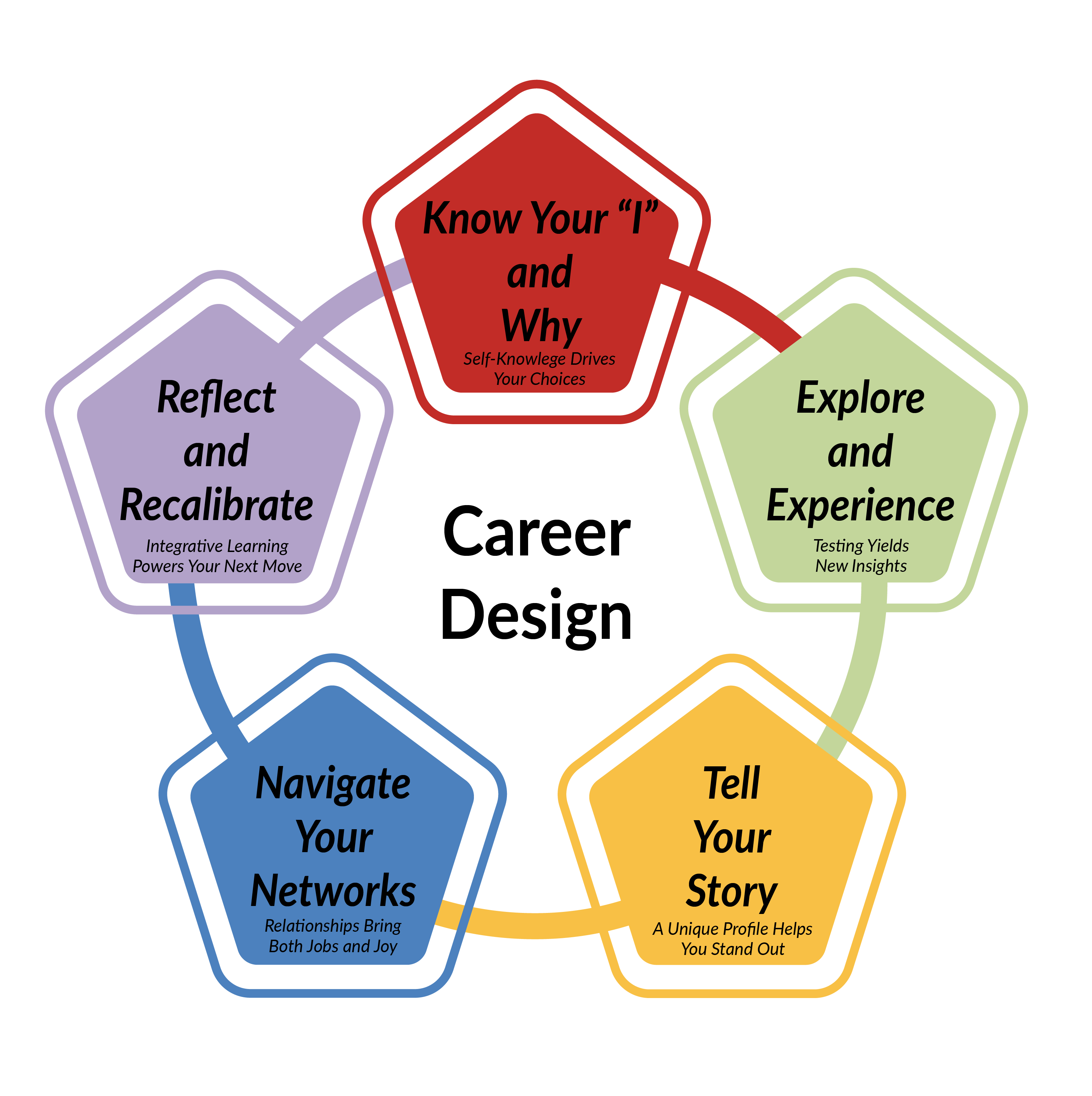Career Design Framework
Career Design is both a process of lifelong learning and an office at Northeastern that provides tools, resources, and strategies for your journey.
In a rapidly shifting economy, human agency and ingenuity matter more than ever. You will need a self-directed approach to career management as you face future job and sector changes. Instead of viewing your career as a predictable “track,” try engaging in the iterative feedback loop of design thinking to identify, explore, test, and refine your options – whether deciding on a major, co-op, postgraduate job, career transition, or lifestyle.
The framework below shows you how to clarify your goals while also adapting to new data. All of our programs are keyed to this framework. For program descriptions click here.

Designing your career requires ongoing self-assessment and reflection to make fitting decisions. Especially when external circumstances are fluid, you need a strong inner compass. Take time to clarify your interests, strengths, and goals – this will help you communicate your purpose and value clearly to others.
Because we learn from experience, you can’t just think your way to a fulfilling career: you need to test things out. Be curious and open-minded as you explore a variety of academic, experiential, and career options. Check NUworks which posts co-op, internship, and job listings.
In a saturated information landscape, how will you stand out? By being yourself! Developing and promoting your personal and professional brand is an ongoing process. It starts with “Knowing Your ‘I’ and Why” so you can tell a distinctive story.
Hiring doesn’t happen through listings alone but through relationships. Each of us is connected to a variety of familial, professional, and social communities, including Northeastern University’s vast global network. Since you can’t easily see other people’s networks, it is essential to Tell Your Story regularly and let the power of networks connect you to fitting opportunities. LinkedIn, NUsource, and NUworks, are all useful networking tools.
Career design is fueled by integrative reflection, which helps you decide what to do next. After you’ve tested an option (e.g. a course, an internship or co-op, a job, travel), assess how the experience went. Did it put you on a fitting path you want to continue, or do you need to course-correct? Taking stock is what enables you to redesign your career and life as needed.
